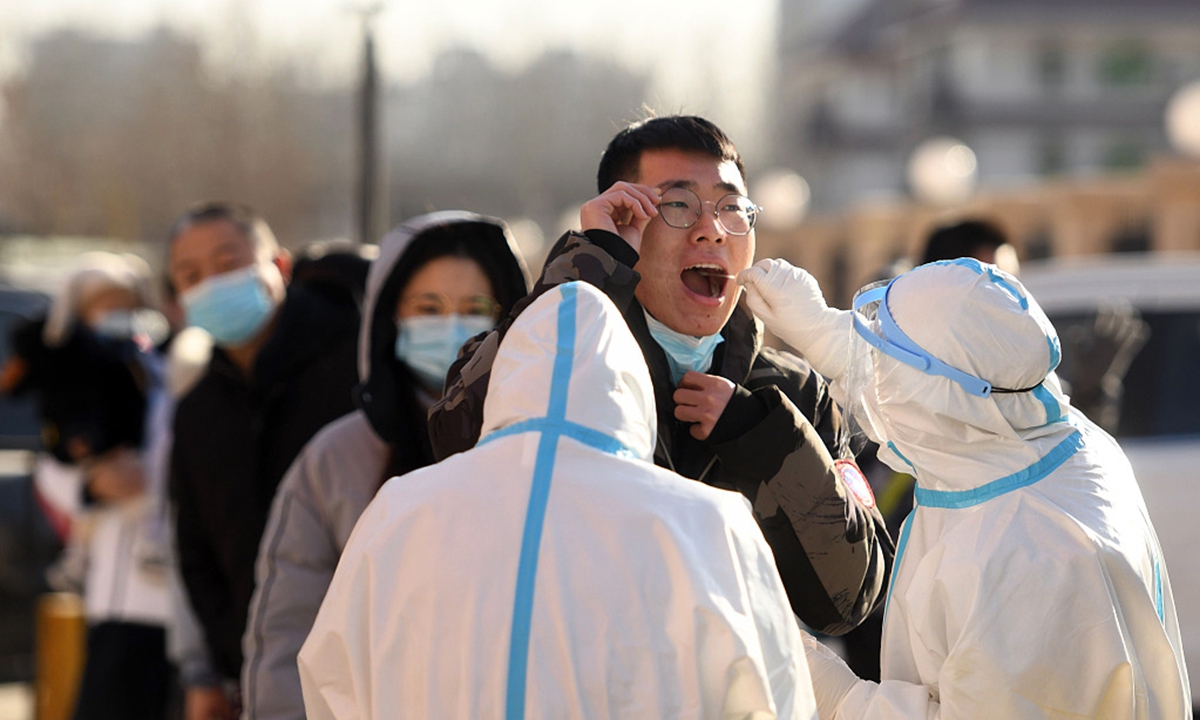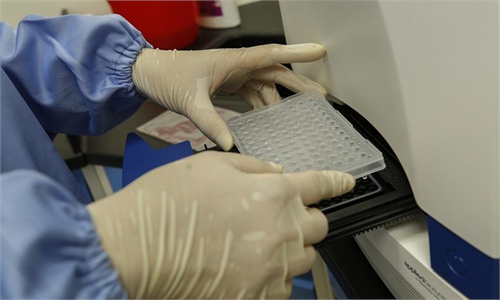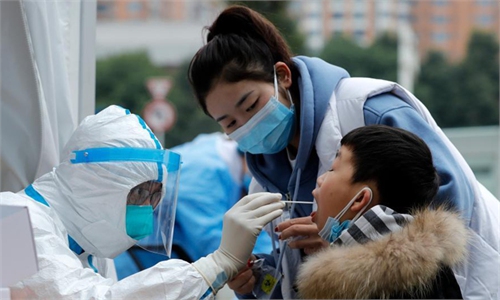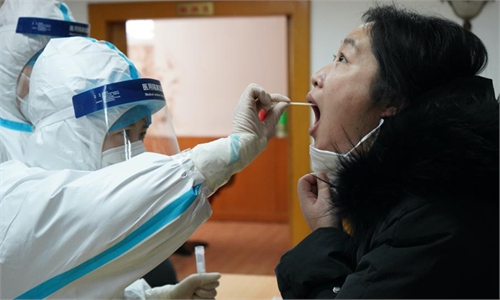Nucleic acid test market rises in value as Spring Festival travel to spark huge demand in China

Residents line up to take nucleic acid test at a community in Shijiazhuang, North China's Hebei Province, on January 7, 2021. Photo: VCG
Demand for nucleic acid tests is expected to expand further amid the Spring Festival in February, the busiest travel time of the year in China, as authorities move to prevent further outbreaks of COVID-19.
Related shares soared on Thursday, and several nucleic acid test producers such as BGI and Hybribio saw their shares increase by the 10-percent daily limit.
Measures to guide the public during their holiday trips were rolled out on Wednesday afternoon. Under these measures, migrants who return to the countryside should show negative nucleic acid test results within seven days before their journey, Chinese health authorities told a press conference on Wednesday.
It is estimated that 1.7 billion trips will be taken during the Spring Festival travel rush this year, with an average of 40 million passengers per day, up more than 10 percent from 2020, according to the Ministry of Transport on Wednesday.
So far, 300 million nucleic acid tests have been administered in China, open data showed. Since the authorities are encouraging people to spend the coming holiday in the cities where they work, and only one test will be necessary for those migrants who travel, some experts estimated that the number of tests will be 170 million during the Spring Festival.
Test makers are running at full capacity, with more than 30 companies involved in the market. The industry includes giant producers with market values of billions of yuan.
Fire Eye laboratory, based in China's BGI Group, is a leading private genome sequencing company with high-throughput sequencing technology based in Shijiazhuang, East China's Hebei Province. It can process up to 1 million samples per day, which will help fight the epidemic in Hebei, according to a BGI briefing sent to the Global Times on Thursday.
As of 7 am on January 14, the testing of more than 360,000 tubes of samples was completed via the laboratory, with a total of more than 2.28 million samples tested.
Maccura Biotechnology Co is another producer of nucleic acid test kits has the capacity to produce kits samples for 1 million people per day.
So far, 10 million test kits have already been produced this year, with another 10 million or so expected to follow, a source at the company told the Global Times on Thursday.
Production capacity is well matched with market demand, and will be adjusted according to the development of the market and the epidemic situation, said the source.
Governments are major purchasers of nucleic acid testing kits, unlike the purchase of ordinary goods, according to industry insiders.
The Shanghai health commission said on Thursday that the city has 125 nucleic acid detection institutions with a daily maximum capacity of 728,000.
Shijiazhuang, the epidemic-hit city in Hebei Province, has built nucleic acid testing labs and designated all medical institutions above level two, as well as the local CDC, as testing locations. There are 107 institutions in Shijiazhuang with the ability to carry out testing, and the maximum detection capacity of a single tube is 380,000 samples per day, media reports said.
Tao Lina, a Shanghai-based medical expert on vaccines, told the Global Times that "the industry chain of China's COVID-19 test kit has become much more mature, and the production capacity can meet the demand."
Nucleic acid testing will be implemented for some time, even after the virus is reined in, as part of the normalization of the epidemic prevention campaign, Yang Zhanqiu, deputy director of the pathogen biology department at Wuhan University, told the Global Times on Thursday.
Some experts called for the industry to be further standardized in local towns and villages, in a bid to better manage loopholes in the tests.
"Nucleic acid tests are normally conducted by hospitals. However, with the huge volume of testing, some places have entrusted third-party nucleic acid testing companies to do the job, and some of them do not have the corresponding testing certificate," said Yang, calling for more standardized regulations on testing agencies.



